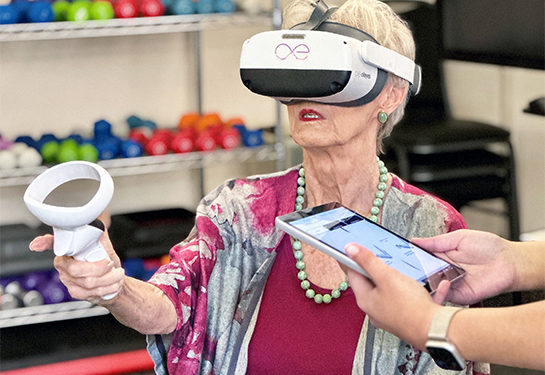Anesthesiology
UC Davis Health’s world-class anesthesiologists offer expert pain relief before, during and after many types of procedures and surgeries.
Medically reviewed by Matthew Malkin, M.D. on Nov. 14, 2023.
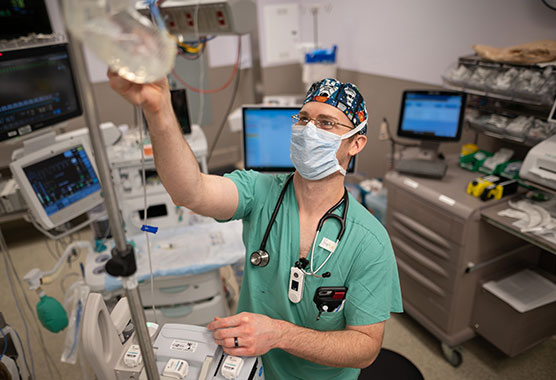
Comprehensive Pain Management
At the UC Davis Department of Anesthesiology and Pain Medicine, our highly trained specialists take care of you, no matter what your health needs are.
Our anesthesiologists offer a complete range of pain management services for patients of all ages. Whether you have an injury, will be undergoing a heart procedure, are planning to give birth or have another medical concern, the UC Davis Health anesthesiology team can help.
Our Difference
Specialized Expertise
We have many different anesthesiology and pain management specialty areas. You can find a UC Davis Health anesthesiologist to support you for every type of health condition and concern.
Up-to-Date Technologies
We use the latest anesthesia techniques and drugs to manage pain and keep you safe. Our team works closely with your other providers to ensure you get the highest level of anesthesia care.
Leading-Edge Research
We work with other divisions and departments within UC Davis Health and beyond to perform medical research. Our innovative research leads to better care for all our patients.
What Is Anesthesiology?
Anesthesiology is the medical specialty that helps with pain relief during surgery and other medical procedures. Anesthesiologists use medications (anesthetics) to block nerve signals to stop you from feeling pain. Our role is to keep you pain-free and safe while under our care.
Our Anesthesiology Services:
Regional Anesthesia
We use regional anesthesia to numb a larger area of your body, such as your entire arm or everything below your waist. You may receive an epidural, spinal anesthesia or peripheral nerve block. In addition, we often use sedation to make you more comfortable. You remain conscious during regional anesthesia, so you will likely have some level of awareness and memory of your care.
Sedation (Monitored Anesthesia Care)
We often use sedation for minor procedures and surgeries, such as cardiac catheterization or a colonoscopy. We deliver pain-relieving medication through an IV to help you relax. During your procedure, we work to give you the right balance of sleepiness, comfort, and safety. Levels of sedation vary from awake to unconscious for short periods of time.
General Anesthesia
We use general anesthesia during major surgeries, such as brain, abdominal or heart surgery. We give you medications that make you lose consciousness and stay asleep — unable to feel any sensation — throughout the procedure. Our team may use additional medication or special equipment to support your breathing and other vital functions.
Our Specialty Areas
The Department of Anesthesiology and Pain Medicine offers subspecialty care that focuses on specific health concerns. This ensures that you receive care that’s best for your individual situation.
Our anesthesiology and pain medicine specialties include:
Ambulatory Anesthesia
We use ambulatory anesthesia for procedures where you don’t need to stay overnight in the hospital. We offer general, local and regional anesthesia, as well as sedation, depending on what’s most appropriate for your medical needs.
Cardiac Anesthesia
We offer cardiac anesthesia for patients having heart (cardiac), lung (thoracic) or blood vessel (vascular) procedures. Our cardiac anesthesiologists have specialized training in monitoring heart function.
Neuroanesthesia
We provide anesthesia for neurosurgical procedures, including aneurisms, brain tumors, cervical spine surgeries and traumatic brain injuries. We use both general anesthesia and sedation, as needed.
Obstetric Anesthesia
We provide anesthesia and pain-relieving medications (analgesia) to women who are pregnant or have just given birth. Our obstetric anesthesiology team is on call 24 hours a day.
Pain Medicine
We collaborate with internists, psychologists, psychiatrists and physical therapists to provide advanced treatment options for patients with chronic pain.
Pediatric Anesthesia
We provide pain relief for your child before, during and after their procedure or surgery at UC Davis Children’s Hospital and other hospital sites. Our providers are available 24 hours a day.
Regional Anesthesia
We offer anesthesia to block pain in part of your body, such as your arms, legs or lower body, during medical procedures or to control pain afterwards. Our team specializes in figuring out the best type of regional anesthesia for your situation.
Trauma Anesthesia
Our specialists care for patients with all types of injuries. UC Davis Health trauma anesthesiologists are available for emergencies 24 hours a day.
You may review screening questions and instructions with a nurse or physician from our Pre-Anesthesia Readiness and Education Program (PREP). Depending on your medical history and the procedure, you may have a phone call, virtual visit or in-person visit. If you have any questions or concerns, ask your provider for a consultation.
-
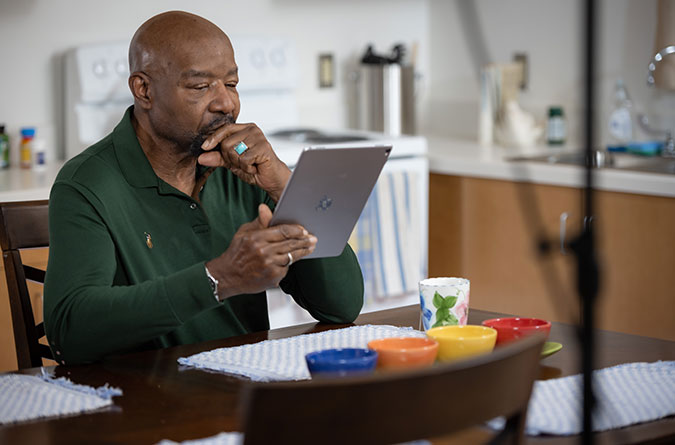
Before Your Procedure
We will develop an anesthesia care plan with you before your procedure. You will need to follow specific, personalized instructions about fasting and taking medications. In most cases, you can drink clear fluids until just before you arrive for your appointment. We understand that restricting food and drink can be challenging, but following these guidelines lowers your risk of serious complications.
-
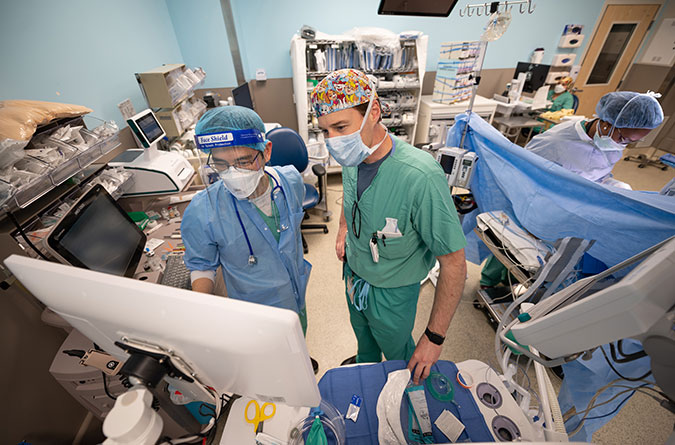
During Anesthesia
Usually, a nurse will place an IV in your arm or hand in the preoperative area. Then, our team takes you to the procedure area. During your procedure, we use the IV to give you anesthesia and pain relief medications. You likely will not remember these events if you receive sedation or general anesthesia.
-
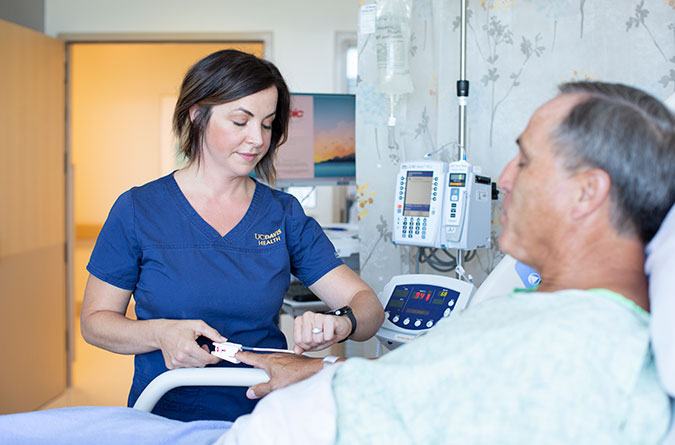
After Your Procedure
Your recovery may take several hours or longer if you had regional anesthesia, sedation or general anesthesia. Our team takes you to a recovery room called the Post Anesthesia Care Unit (PACU).
We monitor you for pain, nausea or other side effects and address these problems if they arise. We also determine next steps for your care, such as discharge to go home or continued care in the hospital.
Before we discharge you to go home, you must have a responsible adult with you. This person will accompany you home and care for you during the first 24 hours after anesthesia.
Recovery and Home Care After Anesthesia
We give you guidance about medications and when you can return to work, drive or do other activities. It’s normal to have trouble remembering these instructions right after your procedure, so having another responsible adult with you will be helpful. We give you a phone number to call anytime you have questions or concerns.
Continue Your Medications
We will review all current and recommended medications with you before you leave the hospital. Don’t drive or operate machinery until you are done taking opioid pain relievers like codeine, hydrocodone or oxycodone.
Rest and Drink Fluids
It’s normal to feel tired and “out of sorts” as you recover from anesthesia and your procedure. Stay hydrated and drink a little more liquids than usual for the first few days to help your recovery. Allow yourself to rest so your body can heal. If you don’t feel like eating, sip clear fluids like water, ginger ale or broth. Then, move on to bland foods like crackers as your appetite returns.
Keep All Follow-Up Appointments
Your surgeon may need to see you for a follow-up visit a few days or weeks after you go home. It’s important to keep this appointment so we can check on your recovery and well-being. If you have questions, call us anytime at the number we provided on your discharge paperwork.
When to Contact Your Provider
We’re here if you have any questions or concerns. Contact us immediately if you experience severe pain, bleeding from your incisions or signs of an infection.

Ranked among the nation’s best hospitals
A U.S. News & World Report best hospital in cardiology, heart & vascular surgery, diabetes & endocrinology, ENT, geriatrics, neurology & neurosurgery, and pulmonology & lung surgery.

Ranked among the nation’s best children’s hospitals
U.S. News & World Report ranked UC Davis Children’s Hospital among the best in pediatric nephrology, orthopedics*, and pulmonology & lung surgery. (*Together with Shriners Children’s Northern California)

Ranked Sacramento’s #1 hospital
Ranked Sacramento’s #1 hospital by U.S. News, and high-performing in aortic valve surgery, back surgery (spinal fusion), COPD, colon cancer surgery, diabetes, gynecological cancer surgery, heart arrhythmia, heart failure, kidney failure, leukemia, lymphoma & myeloma, lung cancer surgery, pacemaker implantation, pneumonia, prostate cancer surgery, stroke, TAVR, cancer, orthopedics, gastroenterology & GI surgery, and urology.

The nation’s highest nursing honor
UC Davis Medical Center has received Magnet® recognition, the nation’s highest honor for nursing excellence.

World-class cancer care
One of ~59 U.S. cancer centers designated “comprehensive” by the National Cancer Institute.

A leader in health care equality
For the 13th consecutive year, UC Davis Medical Center has been recognized as an LGBTQ+ Healthcare Equality Leader by the educational arm of America’s largest civil rights organization.

